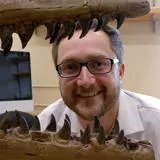
Dr Aaron LeBlanc
Lecturer in Dental Biosciences
Research interests
- Craniofacial
- Dentistry
Biography
Dr. Aaron LeBlanc is a Canadian researcher who joined the Faculty of Dentistry, Oral & Craniofacial Sciences as a Marie Curie Postdoctoral Fellow in October, 2020. He is a palaeontologist by training and has an avid interest in the evolution and development of teeth in everything from fish, to reptiles, to mammals. Dr. LeBlanc’s expertise is in making, imaging, and interpreting histological sections of fossil teeth and jaws, but he also compares these with sections of modern species to understand how structures might have developed in the distant past. His previous work has focused on the evolutionary origins of the periodontal tissues (cementum, periodontal ligament, and alveolar bone), as well as dental adaptations to herbivory in extinct reptiles.
Dr. LeBlanc completed his BSc and MSc at the University of Alberta (Edmonton, Canada) and his PhD at the University of Toronto (Canada). He is now a Lecturer in the Centre for Oral, Clinical & Translational Sciences where his lab studies the structure, chemistry, and development of dental tissues in non-mammalian vertebrates. His current focus is in three areas: (1) the structural and chemical specializations of enamel in reptiles; (2) the evolution and development of ligamentous forms of tooth attachment across reptiles and fish; and (3) the mechanisms by which vertebrates continually replace older teeth.
Dr. LeBlanc is also passionate about outreach and widening participation in dentistry, palaeontology, and science in general. As a result, he helps organize numerous public engagement programs and activities.
Research
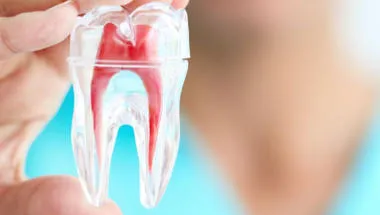
Centre for Oral, Clinical & Translational Sciences
From toothwear to oral pathology, from facial reconstruction to oral surgery, there's one thing that all our research shares: an underlying desire to make a difference to patients and bring benefits to society. We’re particularly strong in prosthodontics and endodontics research, and our work in this field feeds into our postgraduate programmes.
News
FoDOCS Labs at Society of Vertebrate Paleontology's Annual Meeting
FoDOCS labs made a strong showing at the Society of Vertebrate Paleontology’s Annual Meeting in Birmingham (Nov 11–15), with both the LeBlanc and Tucker labs...

Komodo dragons have iron-coated teeth to rip apart their prey
Scientists have discovered that the serrated edges of Komodo dragons’ teeth are tipped with iron.
Faculty of Dentistry, Oral & Craniofacial Sciences Staff Awards
The Faculty of Dentistry, Oral & Craniofacial Sciences held their first ever Staff Awards on Thursday 18 April.
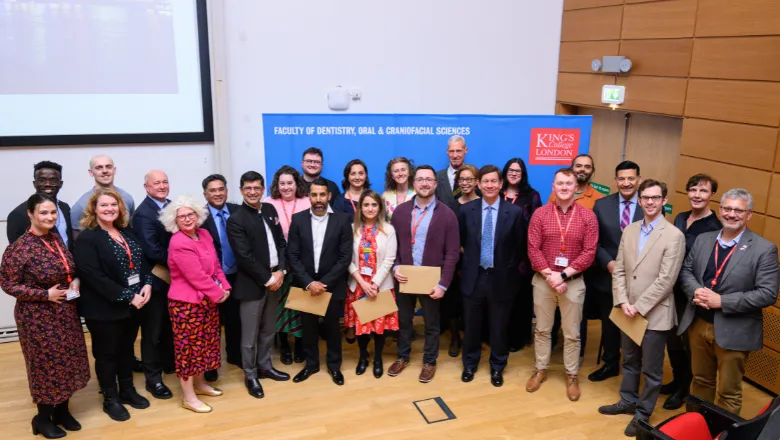
Odontodes: The Developmental and Evolutionary Building Blocks of Dentitions
Professor Moya Meredith Smith and Dr Aaron LeBlanc contribute to a newly published book on the odontode system.
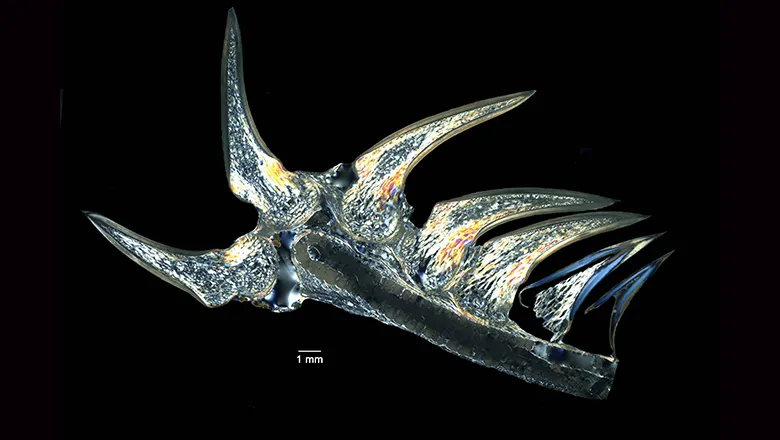
FoDOCS staff and PhD students recognised by the British Society of Oral and Dental Research
Staff and students from the Faculty of Dentistry, Oral & Craniofacial Sciences were recognised at the recent annual meeting of the British Society of Oral and...
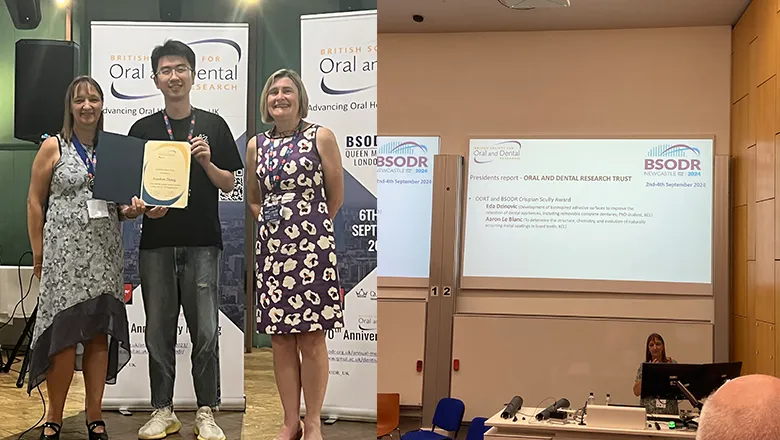
Researchers discover unique way snakes replace their teeth
Method to detect signs of tooth replacement can also aid in identification of snake fossils in the future, even from isolated jaws.
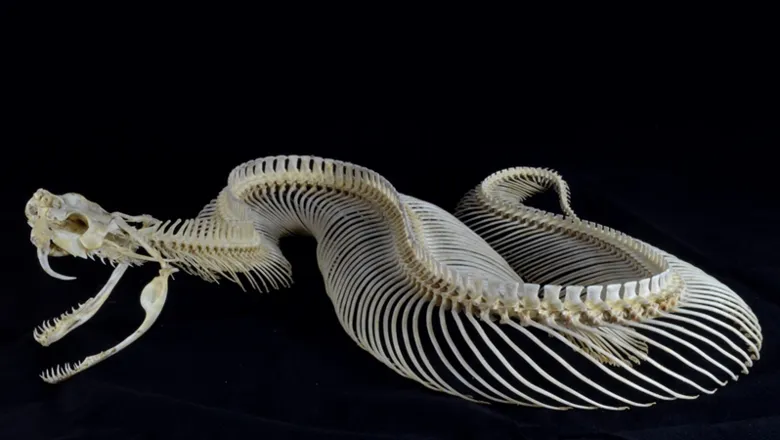
Using dinosaur teeth to widen access to higher education
A new FoDOCS-led project uses investigation of dinosaur teeth and evolution to inform and inspire awareness of study at university, STEM and healthcare...
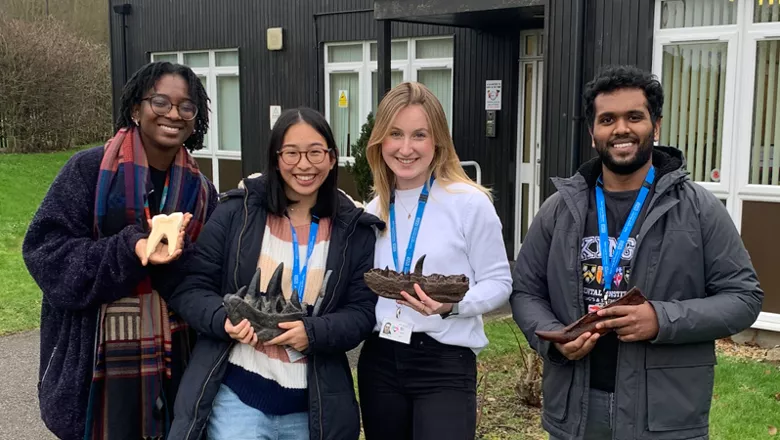
Venom-injecting fangs evolved independently in vipers and cobras
King’s College London biologists shed new light on the evolution of an iconic feature of some modern snakes.
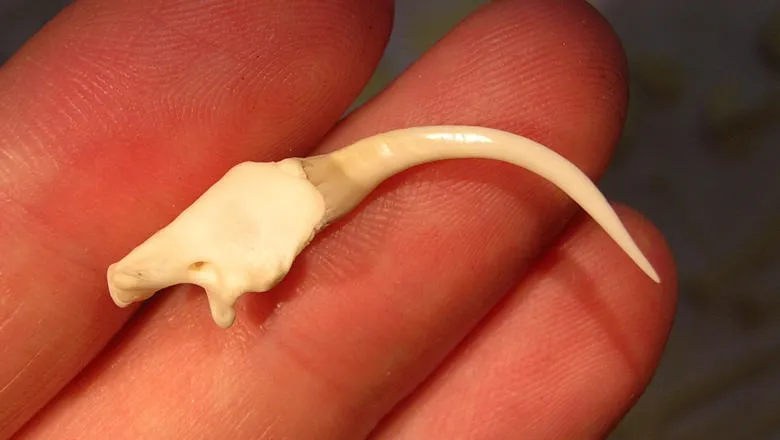
My What Sharp Teeth You Have!
Researchers discover surprising connection between prehistoric dinosaurs and mammals in their teeth.
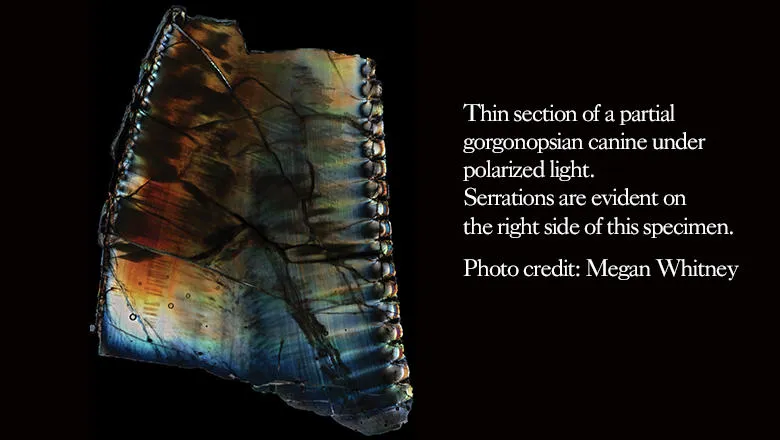
Research

Centre for Oral, Clinical & Translational Sciences
From toothwear to oral pathology, from facial reconstruction to oral surgery, there's one thing that all our research shares: an underlying desire to make a difference to patients and bring benefits to society. We’re particularly strong in prosthodontics and endodontics research, and our work in this field feeds into our postgraduate programmes.
News
FoDOCS Labs at Society of Vertebrate Paleontology's Annual Meeting
FoDOCS labs made a strong showing at the Society of Vertebrate Paleontology’s Annual Meeting in Birmingham (Nov 11–15), with both the LeBlanc and Tucker labs...

Komodo dragons have iron-coated teeth to rip apart their prey
Scientists have discovered that the serrated edges of Komodo dragons’ teeth are tipped with iron.
Faculty of Dentistry, Oral & Craniofacial Sciences Staff Awards
The Faculty of Dentistry, Oral & Craniofacial Sciences held their first ever Staff Awards on Thursday 18 April.

Odontodes: The Developmental and Evolutionary Building Blocks of Dentitions
Professor Moya Meredith Smith and Dr Aaron LeBlanc contribute to a newly published book on the odontode system.

FoDOCS staff and PhD students recognised by the British Society of Oral and Dental Research
Staff and students from the Faculty of Dentistry, Oral & Craniofacial Sciences were recognised at the recent annual meeting of the British Society of Oral and...

Researchers discover unique way snakes replace their teeth
Method to detect signs of tooth replacement can also aid in identification of snake fossils in the future, even from isolated jaws.

Using dinosaur teeth to widen access to higher education
A new FoDOCS-led project uses investigation of dinosaur teeth and evolution to inform and inspire awareness of study at university, STEM and healthcare...

Venom-injecting fangs evolved independently in vipers and cobras
King’s College London biologists shed new light on the evolution of an iconic feature of some modern snakes.

My What Sharp Teeth You Have!
Researchers discover surprising connection between prehistoric dinosaurs and mammals in their teeth.

